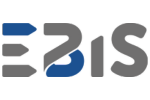The changes do not concern the Power BI tool itself, but the licensing model – the way organizations use the allocated capacity and computing power for reports and analyses. Microsoft Fabric is becoming the new, mandatory standard, which offers a new licensing structure – the so-called F-SKU – and a broader set of functions and technological capabilities.
Power BI Premium kicense retired – what has changed?
As of the announcement date, Microsoft has ended the ability to purchase and renew Power BI Premium P-SKUs. If you currently have one, it will be valid until the end of your current subscription. Once it expires, you will no longer be able to renew it, and your only path forward is to migrate to Microsoft Fabric.
To mitigate the impact of this change, Microsoft is providing:
- 30 days of free Fabric capacity equivalent to the previous P-SKU class – to ensure business continuity,
- 90 days of access to Power BI data – enabling temporary work and securing key data,
- However, after these periods, significant limitations may occur – slowing down the operation by up to 20 seconds and, as a result, completely freezing the capacity.
What does the end of Power BI Premium licensing mean for users?
If you are a Power BI Premium user and your subscription is expiring in the coming months, you will need to plan migration to Microsoft Fabric. This is not a change that can be ignored – failure to act could lead to significant disruptions in reporting and analytics.
Failure to take appropriate steps may result in:
- unavailability of key reports in the company, which affects decision-making,
- loss of data or the need to manually recover and secure it,
- additional costs resulting from rushing, ill-considered migration, errors in capacity assignment or delays in the process.
The good news is that migration – while requiring preparation – is fully feasible, and with the right support, it can be a chance to move to a modern, more flexible data platform. In the following parts of the article, we will present what exactly Microsoft Fabric is, how the migration process works, and how you can prepare for it.
Why switch to Microsoft Fabric?
While at first glance Microsoft Fabric may seem like just a new licensing model, it is actually a completely new quality in data management and analytics. Microsoft Fabric is a comprehensive platform that integrates tools previously available separately – such as Power BI, Data Factory, Lakehouse, or Spark – into a single, coherent environment.
With this integration you gain:
- access to AI-based features and integration with Microsoft Azure,
- Trusted Workspace Access, which increases security and control over data,
- the ability to use private endpoints, which improves collaboration between systems and departments,
- MACC (Microsoft Azure Consumption Commitment) support, which enables more flexible budget planning and resource utilization,
- and better scalability of the data environment – both in terms of the number of users and the size of the analyzed data.
All this means that migrating to Microsoft Fabric not only helps you meet new licensing requirements, but also becomes a real opportunity to modernize and streamline analytics in your organization.
What does the migration from Power BI Premium to Fabric look like?
Moving from Power BI Premium (P-SKU) to Microsoft Fabric (F-SKU) is a process that is worth planning carefully. From a technical perspective, it consists of several main steps:
- Purchasing Fabric F-SKU capacity through the Azure portal is a new way to manage compute power for your data and reporting.
- Assigning workspaces to the new capacity – so your data and reports can run in the new environment.
- Testing reports, dashboards, and datasets to ensure everything works as expected.
- Adjust security and access management policies so that users still have appropriate access, but in compliance with new Fabric standards.
- Avoid double billing – Microsoft offers 30 days of free Fabric capacity, allowing you to transition safely without the risk of double billing.
It is worth adding that Microsoft also provides tools for automatic migration of workspaces, which significantly speeds up the entire process – especially in larger environments where the number of reports and users is large.
How to prepare for safe migration?
If you have a Power BI Premium license, don’t wait until the last day of its validity. A good migration is a planned migration. First, it’s worth performing an audit of the current environment – that is, identifying all the workspaces, reports, data flows and users used.
The next steps are:
- Resource analysis – see which reports are used most often, which processes are critical, and how capacities are being utilized.
- Estimate Fabric F-SKU capacity needs – some organizations may need more or less capacity than they currently have.
- Assessing the impact of migration on teams and processes – it is worth checking how the change will affect the daily work of users, and also ensuring their training.
A well-prepared migration plan allows you to minimize the risk of errors, avoid downtime, and fully utilize the new capabilities offered by Microsoft Fabric.
Power BI Premium License Change FAQ
The change to the Power BI licensing model raises a lot of questions – and rightly so. Here are the most important ones and their answers:
Do I have to pay both for Power BI Premium and Fabric at the same time?
No. Microsoft provides 30 days of free Fabric capacity (F-SKU) after your Power BI Premium license expires. This allows you to migrate without incurring duplicate costs.
What happens if I don’t make it to the migration in time?
After 30 days, your reports may be slower, with a delay of up to 20 seconds. After 90 days, your capacity will be completely frozen, meaning you will no longer be able to use your reports and datasets.
Will Power BI Report Server still be available?
Yes – it is still available with select licenses such as Fabric F64 SKU or SQL Server Enterprise Core with Software Assurance.
EBIS will help you migrate from Power BI Premium to Microsoft Fabric
If your Power BI Premium license is expiring – it’s high time to plan your next steps. At EBIS, we have prepared a free, 2-week migration support program that will allow you to move to Microsoft Fabric smoothly and without the risk of downtime.
As part of our support:
- we perform an audit of your Power BI Premium environment,
- we plan every stage of migration – from purchasing capacity to assigning workspaces,
- we advise on the choice of license and help avoid double payments,
- we provide full technical and organizational support at every stage of the process.
Ensure continuity of reporting – contact EBIS
Retiring your Power BI Premium license is not the end of Power BI – it’s the beginning of working with an even more modern platform, Microsoft Fabric. A well-executed migration will not only secure reporting continuity, but will also open up new analytical possibilities in your organization.
👉 Schedule a free consultation with the EBIS team and let us guide you through the migration step by step – safely, efficiently and fully adapting the solution to your needs. | CONTACT


